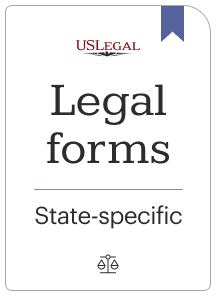

An affidavit is statement of facts which is sworn to before an officer who has authority to administer an oath (e.g. a notary public). The person making the signed statement (the affiant) takes an oath that the contents are, to the best of their knowledge, true. It is also signed by a notary or some other judicial officer that can administer oaths, affirming that the person signing the affidavit was under oath when doing so. These documents are valuable to presenting evidence in court when a witness is unavailable to testify in person.
There are two types of injunctions: a preliminary injunction and a temporary restraining order (TRO). The purpose of both is to maintain the status quo -- to insure a plaintiff that the defendant will not either make him or herself judgment-proof, or insolvent in some way, or to stop him or her from acting in a harmful way until further judicial proceedings are available. The court uses its discretionary power to balance the defendant's due process rights against the possibility of the defendant becoming judgment-proof, and the immediacy of the threat of harm to the plaintiff. Courts can also issue preliminary injunctions to take effect immediately and effective until a decision is made on a permanent injunction, which can stay in effect indefinitely or until certain conditions are met.
An affidavit in support of motion is a legal document that serves as evidence or support for a motion filed in a court of law. It is typically used to present facts, statements, or testimony that affirm the truth of specific claims made in the motion. This powerful tool helps persuade the court to grant the requested relief sought in the motion. In an affidavit in support of motion example, there are various types, each tailored to different situations and legal contexts. Some common types of affidavits include: 1. Affidavit in Support of Motion for Summary Judgment: This type of affidavit is submitted when a party requests the court to rule in their favor without a trial. The affidavit typically includes factual statements and other evidence that demonstrate there are no genuine issues of material fact and that the moving party is entitled to judgment as a matter of law. 2. Affidavit in Support of Motion to Dismiss: This type of affidavit is filed by a party seeking to have a case dismissed before it proceeds to trial. The affidavit aims to establish legal grounds and provide facts that support the request for dismissal, such as lack of jurisdiction or failure to state a claim. 3. Affidavit in Support of Motion for Preliminary Injunction: When a party seeks immediate relief to prevent irreparable harm before a case is resolved, they file an affidavit in support of a motion for a preliminary injunction. This affidavit outlines the specific facts and evidence suggesting that the moving party will suffer harm if the injunction is not granted. 4. Affidavit in Support of Motion for Change of Venue: If one party believes that the current court location is not appropriate or convenient, they can file an affidavit in support of a motion for change of venue. This affidavit presents factual evidence and legal arguments demonstrating the need for the case to be transferred to a different jurisdiction or court. 5. Affidavit in Support of Motion to Suppress Evidence: In criminal cases, when a party wishes to exclude evidence due to its illegality or violation of constitutional rights, they file an affidavit in support of a motion to suppress evidence. The affidavit typically presents facts, details, and arguments that prove the evidence was obtained illegally and should not be admitted in court. When drafting an affidavit in support of motion, it is crucial to ensure that the document is comprehensive, accurate, and persuasive. The content should clearly articulate the relevant facts, legal arguments, and supporting evidence, as well as adhere to the specific rules and requirements set by the jurisdiction where the motion is filed.
Eliminate the headache that comes with your legal paperwork. Discover the comprehensive US Legal Forms catalog where you can find legal templates, examine their relevance to your circumstances, and download them immediately.